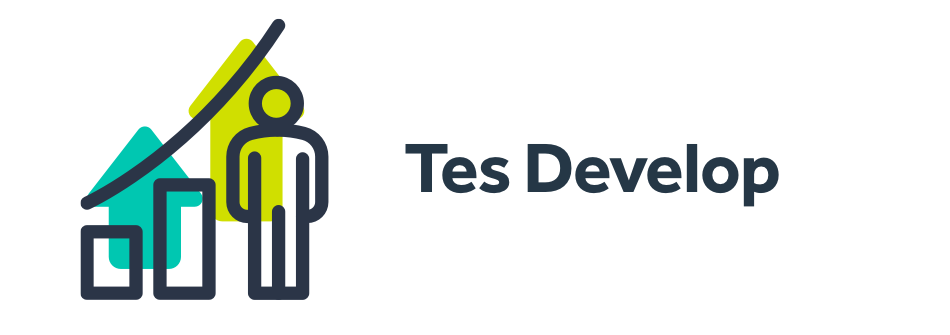Webinar: A new teacher’s guide to getting proper CPD

This article is based on an online webinar which took place on 21 September 2020. During the session Jill gave her expert advice on exactly where and how new teachers can find the CPD they need. You can watch the recording and read Jill’s transcript below:
As you embark on your teaching career, it’s useful for you to give thought to your ongoing learning and development opportunities.
What constitutes effective learning for you, and how can you make the most of opportunities to build your skills and your confidence?
It is also worthwhile to consider how you can be discriminating where Continuing Professional Development (CPD) is concerned, so that you make the most of your time, and your and your school’s financial resources too.
What does the best CPD look like?
Consider this question: When you think about your own continuing professional development and learning, what do you hope to get from it? What are you trying to achieve?
You might, for example, be a primary school teacher in your second year of teaching and feel as though you have mastered some classroom strategies, but want to build competence in specific subject areas.
The shape of CPD has certainly evolved in recent decades. I started my teaching career in 1980, and I have to say that CPD wasn’t something we focussed on in my early years in the classroom.
It was only, probably, In the second half of my career that we began to take professional development seriously. This is interesting, because educational research makes clear that the thing that makes the greatest difference to what pupils are able to achieve, is the quality of teaching.
Developing the staff has been shown in research to be the most important and productive activity schools can invest in, if they are committed to improving the quality of teaching.
For me, the best CPD makes a difference to your professional practice, in such a way that the experience of pupils, and of your colleagues, improves.
Evidence again suggests that the best CPD is very much focussed on your practice - it’s more likely to be school-based than ‘going off on a course and coming back with new knowledge’. It’s relevant, appropriate to your particular needs and, perhaps, your professional context. It motivates, lifts and even inspires you, and it leads to changed behaviour and improvement.
Tom Sherrington talks about the limitations of blanket CPD where everyone is herded together and given the same training, irrespective of their needs. He also suggests that even with health and safety, or child protection and safeguarding updates, which we all need, there are better ways to do this training than the whole staff session in the hall.
So how can you take charge of your own CPD?
Can you think of a time where you took control, showed initiative and consciously activated something which led to effective CPD for you?
My view is that we all need to take responsibility for our own development, and not to see ourselves as passive consumers who can simply wait for others to present us with CPD opportunities.
If you choose to read a book about education, you are taking control. If you use social media, such as Twitter, to engage with other educators, learn from them and contribute to their learning, you are showing initiative.
If you read blogs - and if you decide to write blog posts yourself - you are actively seeking out opportunities to reflect, share, learn. If you instigate a conversation, ask for advice, ask to observe, or be observed, in order to learn and build your professional skills, you are taking charge.
If you voluntarily attend an event - face to face or, at the moment, perhaps online, or choose to listen to an education podcast, you are beginning to take control of your own development.
How can you ensure that you are not a passive consumer of CPD?
Clearly consumption is not sufficient. The fact that you do something doesn’t, in itself, necessarily make an impact. If you read something, watch or listen to something, attend an event - what ensures that it does make a difference and it doesn’t wash over you?
What do you need to do in order to ensure that this CPD is effective and the best intentions don’t evaporate when you become busy in your classroom?
I would suggest that success depends on reflection - it’s about the thinking that happens during and, especially, afterwards. It’s the questions you ask yourself, and what you do as a result of the answers you give yourself.
What have I learnt, here? What difference is it going to make? What might I do more of? Less of? What might I start? What might I stop? How is this relevant to my context, my current skills, and the areas in which I want to build my confidence and expertise? Talking through these questions with others can also help.
Checking for understanding is key. Just as we check for understanding with pupils, we need to go through the process ourselves to absorb and internalise what we are learning and to consider how we might act on our new knowledge.
It partly depends on how self-aware you are. Where are you strong, and how can you make the absolute best of your strengths? Where do you want to be stronger, and what and who can help you along the way?
I believe that the BEST teachers are those who are committed to being better teachers. The BEST leaders are those who are committed to being better leaders. The ones who think they’ve cracked it? Trust me - they haven’t! I am still learning about education, and about leadership, over 40 years since I stepped into a classroom to teach my first lesson.
How can you spot worthwhile CPD before you invest time or money in it?
You really don’t want to waste your time and you certainly don’t want to waste your money or your school’s money - so how do you know whether something is going to be worthwhile before you invest time or cash in it?
I’m going to be really honest here and say that, sometimes, I don’t think you can know in advance. And sometimes you may be put into a situation where training is presented to you - it isn’t your choice, and you might find it of questionable value.
Interestingly, in ‘Teacher in the Cupboard’, Lisa Jane Ashes writes about how she is determined to get all she possibly can from any training opportunity she’s subjected to, whatever the quality.
When I read this, I thought: if you are in this situation and you don’t have a choice, that’s actually a positive and constructive approach to take.
However, ideally I would want you to have a choice - and to make a thoughtful and considered decision about what to spend your time and money on so that it connects to your own particular needs and it actively helps you to become even better at your job.
Again, this relies on you knowing yourself and being honest about where you need to improve your skills. And then enlisting the support of leaders and colleagues who can guide and advise you.
Find out what you can about different learning opportunities - ask for others’ views, read reviews, share questions on Twitter. What should you be reading, watching, listening to?
There is a significant amount of material online as a result of lockdown, and some of it is superb, so ask around and see what others might recommend (especially those whose views you know you especially respect and value).
With online resources you can dip in - watch or listen to five minutes, and be discriminating about whether you think this will be worthwhile for you. And then return the favour - pay it forward. What would you recommend to others?
I want to finish with a few of my own recommendations - blog posts, magazines/journals and books which you might find useful and interesting. But if you start something and realise it isn’t helping you - especially something of book length - don’t be afraid to stop and try something else.
Some useful tips and resources
- My blog post on the changing shape of CPD
- Tom Sherrington’s blog post on teacher CPD
- Mark Anderson’s blog post on using Twitter for CPD
- Join The Chartered College of Teaching, if you’re not already a member, to access their excellent Research journal, ‘Impact’
- Discuss with subject specialists professional associations they would recommend you join, and specialist journals you might find useful
- Lisa Jane Ashes, Teacher in the Cupboard
- Doug Lemov, Teach Like a Champion 2
- Jon Tait, Teaching Rebooted
- Shaun Allison and Andy Tharby, Making Every Lesson Count and the related subject versions, such as Making Every English Lesson Count
Jill Berry is a former head now working as a leadership consultant


